|
|
|
Книги издательства «Wiley»
|
Издательство: Wiley Жанр: Wiley Страниц: 650 страниц Загрузил: admin, 14 августа 2009
Moscow, 1937: the soviet metropolis at the zenith of Stalin’s dictatorship. A society utterly wrecked by a hurricane of violence. In this compelling book, the renowned historian Karl Schlögel reconstructs with meticulous care the process through which, month by month, the terrorism of a state-of-emergency regime spiraled into the ‘Great Terror’ during which 1 ½ million human beings lost their lives within a single year. He revisits the sites of show trials and executions and, by also consulting numerous sources from the time, he provides a masterful panorama of these key events in Russian history. He shows how, in the shadow of the reign of terror, the regime around Stalin also aimed to construct a new society. Based on countless documents, Schlögel’s historical masterpiece vividly presents an age in which the boundaries separating the dream and the terror dissolve, and enables us to experience the fear that was felt by people subjected to totalitarian rule. This rich and absorbing account of the Soviet purges will be essential reading for all students of Russia and for any readers interested in one of the most dramatic and disturbing events of modern history. |
|
A compendium that provides the intellectual equipment necessary to engage with and participate in effective philosophical argument, reading, and reflection. It features entries and a chapter drawn from methods in the history of philosophy. It is of interest to philosophy students at both beginning and advanced levels. |
|
Ten simple steps and forty-six techniques to help business professionals, engineers, and scientists write more effectively and efficiently. Can Do Writing is the writing guide for the hundreds of millions of people who write documents as part of a job. A survey of 112 highly paid occupations shows that these professionals share one career-building skill: writing is essential. For twenty-plus years, Daniel and Judith Graham have trained more than 70,000 business and technical professionals to use this system. Every one of these professionals can benefit from the proven writing system described in this book because Can Do Writing gives them the skills they need to succeed. In ten steps and 46 writing techniques, the authors systematically lead business readers through analysis, composition, and editing. These steps and techniques work every time for every imaginable document, for every profession, for every subject and every client. Writing isn't easy, but Can Do Writing makes even the most complex writing project manageable. Daniel and Judith Graham (Fairfax, VA) are the founders and principals of Graham Associates, providing quality writing consulting and training for business professionals, engineers, and scientists for more than 20 years. |
|
If You Understand Brain Basics, You'll Sell More As much as 95% of our decisions are made by the subconscious mind. As a result, the world's largest and most sophisticated companies are applying the latest advances in neuroscience to create brands, products, package designs, marketing campaigns, store environments, and much more, that are designed to appeal directly and powerfully to our brains. The Buying Brain offers an in-depth exploration of how cutting-edge neuroscience is having an impact on how we make, buy, sell, and enjoy everything, and also probes deeper questions on how this new knowledge can enhance customers' lives. The Buying Brain gives you the key to Brain-friendly product concepts, design, prototypes, and formulation Highly effective packaging, pricing, advertising, and in-store marketing Building stronger brands that attract deeper consumer loyalty A highly readable guide to some of today's most amazing scientific findings, The Buying Brain is your guide to the ultimate business frontier — the human brain. |
|
Florence and the Renaissance have become virtually synonymous, bringing to mind names like Dante, Giotto, Petrarch, Boccaccio, and many others whose creativity thrived during a time of unprecedented prosperity, urban expansion, and intellectual innovation. With more than 200 illustrations, Florence at the Dawn of the Renaissance reveals the full complexity and enduring beauty of the art of this period, including panel paintings, illuminated manuscripts, and stained glass panels. The book considers not only the work of Giotto and other influential artists, including Bernardo Daddi, Taddeo Gaddi, and Pacino di Bonaguida, but also that of the larger community of illuminators and panel painters who collectively contributed to Florence's artistic legacy. It places particular emphasis on those artists who worked in both panel painting and manuscript illumination, and presents new conservation research and scientific analyses that shed light on artists' techniques and workshop practices of the times. Reunited here for the first time are twenty-six leaves of the most important illuminated manuscript commission of the period: the Laudario of Sant' Agnese. The splendor of this book of hymns exemplifies the spiritual and artistic aspirations of early Renaissance Florence. A major exhibition on this subject will be on view at the J. Paul Getty Museum November 13, 2012, through February 10, 2013, and at the Art Gallery of Ontario March 16, 2013, through June 16, 2013. Contributors to this volume include Roy S. Berns, Eve Borsook, Bryan Keene, Francesca Pasut, Catherine Schmidt Patterson, Alan Phenix, Laura Rivers, Victor M. Schmidt, Alexandra Suda, Yvonne Szafran, Karen Trentelman, and Nancy Turner. |
|
«The ultimate expose of the Misunderstood Millennials «Understanding Y» is a fresh and incisive book that offers a better understanding, appreciation and awareness of the Millennial generation. In this groundbreaking work, author Charlie Caruso has amassed a diverse array of papers, articles and journals from prominent individuals, noted entrepreneurs and bestselling authors who collectively explore how Gen Y thinks, interacts and works. «Understanding Y» gives insight into the generation and examines their motivations and passions.» |
|
Flowing through the heart of the North China Plain home to 200 million people the Yellow River sustains one of China s core regions. Yet this vital water supply has become highly vulnerable in recent decades, with potentially serious repercussions for China s economic, social, and political stability. The Yellow River is an investigative expedition to the source of China s contemporary water crisis, mapping the confluence of forces that have shaped the predicament that the world s most populous nation now faces in managing its water reserves. Chinese governments have long struggled to maintain ecological stability along the Yellow River, undertaking ambitious programs of canal and dike construction to mitigate the effects of recurrent droughts and floods. But particularly during the Maoist years the North China Plain was radically re-engineered to utilize every drop of water for irrigation and hydroelectric generation. As David A. Pietz shows, Maoist water management from 1949 to 1976 cast a long shadow over the reform period, beginning in 1978. Rapid urban growth, industrial expansion, and agricultural intensification over the past three decades of China s economic boom have been realized on a water resource base that was acutely compromised, with effects that have been more difficult and costly to overcome with each passing decade. Chronicling this complex legacy, The Yellow River provides important insight into how water challenges will affect China s course as a twenty-first-century global power. |
|
The past twenty-five years have witnessed a revolution in the science of addiction, yet we still rely upon sorely outdated methods of treatment. Expensive new programs for managing addiction are also flourishing, but since they are not based in science, they offer little benefit to people who cannot afford to lose money or faith in their recovery. Clarifying the cutting-edge science of addiction for practitioners and general readers, The Thirteenth Step pairs stories of real patients with explanations of key concepts relating to their illness. A police chief who disappears on the job illustrates the process through which a drug can trigger the brain circuits mediating relapse. One person's effort to find a burrito shack in a foreign city illuminates the reward prediction error signaled by the brain chemical dopamine. With these examples and more, this volume paints a vivid, relatable portrait of drug seeking, escalation, and other aspects of addiction and suggests science-based treatments that promise to improve troubling relapse rates. Merging science and human experience, The Thirteenth Step offers compassionate, valuable answers to anyone who hopes for a better handle on a pernicious and confounding disease. |
|
Victorian architect-designer E. W. Godwin (1833-1886), tying himself neither morally nor aesthetically to a single style, approached design with what he called judicious eclecticism. Seeking to design furniture appropriate to the needs of modern living, he grappled with the problems of affordability, utility, and function and experimented with modular and fitted furniture decades before it became popular in the mid-twentieth century. This book is the first comprehensive study of Godwin's furniture designs. Taking the form of a catalogue raisonne, the book documents and reproduces all known examples of his secular furniture and related furniture designs. Susan Weber Soros traces the development of Godwin's style, examines its sources, and assesses the historical importance of his work. She discusses how Godwin combined antiquarian interests with the study of more recent design traditions from different parts of the world, Including Japan. Godwin worked in six major styles: Gothic revival, Anglo-Japanese, Anglo-Greek, Anglo-Egyptian, Queen Anne or Cottage style, and Old English or Jacobean. Soros also describes his work for leading art manufacturers; the work he exhibited at great international exhibits in Vienna, Philadelphia, and Paris; and his role as designer of choice for such leading artists of his generation as James McNeill Whistler and Oscar Wilde. |
|
As oil insecurity deepens, the extraction risks of fossil fuels rise, and concerns about climate instability cast a shadow over the future of coal, a new world energy economy is emerging. The old economy, fueled by oil, natural gas, and coal is being replaced with one powered by wind, solar, and geothermal energy. The Great Transition details the accelerating pace of this global energy revolution. As many countries become less enamored with coal and nuclear power, they are embracing an array of clean, renewable energies. Whereas solar energy projects were once small-scale, largely designed for residential use, energy investors are now building utility-scale solar projects. Strides are being made: some of the huge wind farm complexes under construction in China will each produce as much electricity as several nuclear power plants, and an electrified transport system supplemented by the use of bicycles could reshape the way we think about mobility. |
|
In The Genealogy of a Gene, Myles Jackson uses the story of the CCR5 gene to investigate the interrelationships among science, technology, and society. Mapping the varied genealogy of CCR5 — intellectual property, natural selection, Big and Small Pharma, human diversity studies, personalized medicine, ancestry studies, and race and genomics — Jackson links a myriad of diverse topics. The history of CCR5 from the 1990s to the present offers a vivid illustration of how intellectual property law has changed the conduct and content of scientific knowledge, and the social, political, and ethical implications of such a transformation. The CCR5 gene began as a small sequence of DNA, became a patented product of a corporation, and then, when it was found to be an AIDS virus co-receptor with a key role in the immune system, it became part of the biomedical research world — and a potential moneymaker for the pharmaceutical industry. When it was further discovered that a mutation of the gene found in certain populations conferred near-immunity to the AIDS virus, questions about race and genetics arose. Jackson describes these developments in the context of larger issues, including the rise of biocapitalism, the patentability of products of nature, the difference between U.S. and European patenting approaches, and the relevance of race and ethnicity to medical research. |
|
The workplace is drastically changing. Managers have more direct reports than before the recession, Millennials will soon out number all other generations at work, businesses have the new technology and tools to boost performance, cut costs, and give employees more freedom over their own projects, and of course, our ability to work from anyplace, at any time. In order for businesses to succeed in this new environment, employees, managers, and organizations as a whole need to redefine what it means to work. The Future of Work explores the new behaviors, new technologies, and the new people entering the workforce, focusing on: How the traditional command and control leadership model is deadWorking with and for Millennials, who expect to be doing meaningful work, share their voice, and want rapid feedbackHow to adapt to the mobile workerHow to succeed when the corporate ladder is replaced by employees creating their own wayWhy the future of work is about sharing information and not hoarding itHow new technologies are reshaping the way we communicate by forcing an open environment of collaboration among all levels The Future of Work is about what we can do to reach our bottom line while empowering our employees across the board, creating not only profitable businesses and meaningful work, but an environment to attract and keep the best talent. |
|
The change is both unexpected and so fundamental in nature that it represents a true shift in the energy macro and micro economic landscape. The book is divided into three parts: 1) The first part sets the stage and outlines the current state of the energy markets as well as touching on some key developments and changes. 2) Strategies on how investors may profit from current and future developments are set out in the second part of the book, which sets out ten key pillars of a successful energy investment strategy. 3) The third part of the book will briefly outline the historical journey of the energy markets, putting into perspective the recent changes and drawing parallels between shifts and changes in the past. It will also include supporting information that will provide an explanation of key technologies that are driving the change and that are crucial for analysts and investors to understand. |
|
Every day, corporations are connecting the dots about our personal behavior silently scrutinizing clues left behind by our work habits and Internet use. The data compiled and portraits created are incredibly detailed, to the point of being invasive. But who connects the dots about what firms are doing with this information? The Black Box Society argues that we all need to be able to do so and to set limits on how big data affects our lives. Hidden algorithms can make (or ruin) reputations, decide the destiny of entrepreneurs, or even devastate an entire economy. Shrouded in secrecy and complexity, decisions at major Silicon Valley and Wall Street firms were long assumed to be neutral and technical. But leaks, whistleblowers, and legal disputes have shed new light on automated judgment. Self-serving and reckless behavior is surprisingly common, and easy to hide in code protected by legal and real secrecy. Even after billions of dollars of fines have been levied, underfunded regulators may have only scratched the surface of this troubling behavior. Frank Pasquale exposes how powerful interests abuse secrecy for profit and explains ways to rein them in. Demanding transparency is only the first step. An intelligible society would assure that key decisions of its most important firms are fair, nondiscriminatory, and open to criticism. Silicon Valley and Wall Street need to accept as much accountability as they impose on others. |
|
This volume of essays reexamines the establishment and early history of the Accademia di San Luca in Rome, one of the most important centres of governance, education, and theory in the arts for the early modern period and the model for all subsequent academies of art worldwide. It is the most comprehensive history of the Accademia to be published in more than forty years, and the first in nearly two hundred years to be based almost entirely on new primary and documentary material. In reconstructing the early history of the institution, the volume also provides a new basis for tracking the careers of painters, sculptors, and architects working in Rome in the early 16th century, and for understanding the artistic and professional issues that engaged them. |
|
Human beings evolved in the company of others and flourish in proportion to their positive social ties. To understand the human brain, we must situate its biology in the wider context of society. To understand society, we must also consider how the brains and minds of individuals shape interactions with other human beings. Social Neuroscience offers a comprehensive new framework for studying the brain, human development, and human behavior. In this book, leading researchers in the fields of neurobiology, psychiatry, psychology, and sociology elucidate the connections between brain biology and the brain s functioning in the social world, providing a state-of-the-art interdisciplinary explanation of how humans think and act, as well as the ways we define and treat pathological behavior. Synthesizing the insights and perspectives of these experts, Social Neuroscience examines how neural processes make the brain sensitive to social experience, how cognition shapes social behavior, and how social networks create a range of responses among different individuals to the same environmental stimuli. The mutually reinforcing connections between brain, mind, and society have profound implications for human health, from the emotionally damaging effects of severe social deprivation to the neurological impact of parental abuse and neighborhood violence. The authors explore these connections, with special focus on mental illnesses, including schizophrenia a disorder characterized by marked social deficits in which a neurological basis is now well established. |
|
In the development of any new energy project, alternative schemes that meet overall project goals are usually feasible. Like any others, renewable energy and energy efficiency schemes must be evaluated against a range of criteria in order to select the most appropriate for development. Appraisal of Renewable Energy and Energy Efficient Projects deals with such evaluations, illustrating appraisal against economic and financial measures as well as non-economic measures. The most important technologies are first described, stressing the economic and performance characteristics which influence project performance. A short description of the operation of common energy markets is also included, so that projects can be put into context and cash flows estimated. Key project appraisal concepts are then introduced, approaches to modelling the cash flows in energy projects are described, and the issues of uncertainty and optimisation are fully discussed. All aspects illustrated with a number of current case studies. |
|
«The Chernobyl disaster has been variously ascribed to human error, reactor design flaws, and industry mismanagement. Six former Chernobyl employees were convicted of criminal negligence; they defended themselves by pointing to reactor design issues. Other observers blamed the Soviet style of ideologically driven economic and industrial management. In Producing Power, Sonja Schmid draws on interviews with veterans of the Soviet nuclear industry and extensive research in Russian archives as she examines these alternate accounts. Rather than pursue one «definitive» explanation, she investigates how each of these narratives makes sense in its own way and demonstrates that each implies adherence to a particular set of ideas — about high-risk technologies, human-machine interactions, organizational methods for ensuring safety and productivity, and even about the legitimacy of the Soviet state. She also shows how these attitudes shaped, and were shaped by, the Soviet nuclear industry from its very beginnings. Schmid explains that Soviet experts established nuclear power as a driving force of social, not just technical, progress. She examines the Soviet nuclear industry's dual origins in weapons and electrification programs, and she traces the emergence of nuclear power experts as a professional community. Schmid also fundamentally reassesses the design choices for nuclear power reactors in the shadow of the Cold War's arms race. Schmid's account helps us understand how and why a complex sociotechnical system broke down. Chernobyl, while unique and specific to the Soviet experience, can also provide valuable lessons for contemporary nuclear projects.» |
|
Generations of student writers have been subjected to usage handbooks that proclaim, This is the correct form. Learn it — books that lay out a grammar, but don't inspire students to use it. By contrast, this antihandbook handbook, presenting some three hundred sentences drawn from the printed works of a single, typical day in the life of the language — December 29, 2008 — tries to persuade readers that good grammar and usage matter. Using real-world sentences rather than invented ones, One Day in the Life of the English Language gives students the motivation to apply grammatical principles correctly and efficiently. Frank Cioffi argues that proper form undergirds effective communication and ultimately even makes society work more smoothly, while nonstandard English often marginalizes or stigmatizes a writer. He emphasizes the evolving nature of English usage and debunks some cherished but flawed grammar precepts. Is it acceptable to end a sentence with a preposition? It is. Can you start a sentence with a conjunction? You can. OK to split an infinitive? No problem. A grammar and usage handbook like no other, One Day in the Life of the English Language features accessible chapters divided into Fundamentals, Fine Tuning, and Deep Focus, allowing readers to select a level most suited to their needs. It also includes a glossary, a teachers' guide, and a section refuting some myths about digital-age English. |
|